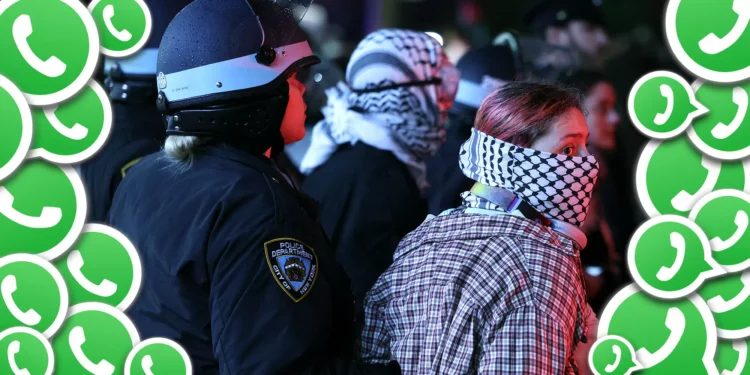In recent years, the conflict between Israel and Palestine has become increasingly polarizing, sparking intense debates and discussions around the world. Social media platforms, such as WhatsApp, have become hubs for these discussions, with people from all backgrounds and perspectives sharing their thoughts and opinions.
However, for some members of WhatsApp groups, speaking out for Palestine and criticizing Israel can be viewed as controversial and even dangerous. This is because they believe that any criticism of Israel automatically equates to support for Hamas, the militant group that governs the Gaza Strip.
This mindset is not only flawed, but it also stifles important conversations and perpetuates a one-sided narrative. It is crucial to understand that supporting Palestine does not mean supporting Hamas, and criticizing Israel does not equate to anti-Semitism.
Unfortunately, this narrow-minded view is not limited to WhatsApp groups. In fact, it has spilled over into the real world, with The Columbia Network, a pro-Israel advocacy group, actively working behind the scenes to deport and arrest student protesters who speak out against Israeli policies.
The Intercept recently published an article shedding light on the actions of The Columbia Network, which aims to suppress any form of protest or criticism against Israel on college campuses. The group has been accused of using tactics such as intimidation, harassment, and even legal action to silence Palestinian activists and their supporters.
The article revealed that The Columbia Network has close ties with the Israeli government and works closely with pro-Israel organizations in the United States. This partnership allows them to have a strong influence on campus policies and events, often promoting a pro-Israel agenda and silencing any dissenting voices.
The network also has a history of targeting Palestinian students and their allies, with some being questioned and even arrested by law enforcement for simply expressing their support for Palestine. This is a clear violation of their First Amendment rights and a blatant attempt to suppress free speech.
The Intercept’s investigation also uncovered evidence of The Columbia Network’s involvement in the deportation of Palestinian student, Lara Alqasem, who was studying at Hebrew University in Jerusalem. Alqasem was detained at the airport for two weeks and eventually deported due to her involvement in a pro-Palestinian group during her time as an undergraduate student in the United States.
Such actions by The Columbia Network are deeply concerning and go against the principles of academic freedom and free speech. It is alarming to see a pro-Israel advocacy group using their influence to silence and punish those who dare to speak out against Israeli policies.
Furthermore, this kind of behavior only serves to fuel the already existing tensions between Israel and Palestine. Instead of promoting dialogue and understanding, The Columbia Network’s actions only serve to deepen the divide and hinder any chance of finding a peaceful resolution to the conflict.
It is also important to note that criticizing Israel’s policies and actions does not make someone anti-Semitic. It is possible to support the rights of Palestinians and criticize the actions of the Israeli government without being labeled as anti-Semitic.
In fact, many Jews around the world, including in Israel, are critical of the Israeli government’s treatment of Palestinians and support the Palestinian cause. It is crucial to understand that this is not a religious or ethnic conflict, but a political one that requires open and honest discussions.
In conclusion, it is vital for WhatsApp groups and society as a whole to recognize that speaking out for Palestine and criticizing Israel does not mean supporting Hamas. It is time to break away from the narrow-minded narrative and have meaningful conversations that will lead to a better understanding of the conflict and potential solutions.
Furthermore, The Columbia Network’s actions must be condemned and opposed as they go against the fundamental principles of free speech and academic freedom. We must stand in solidarity with those who are being targeted and support their right to peacefully protest and speak out against injustice.
As individuals, we can also play our part by educating ourselves on the conflict and actively listening to different perspectives. Let us not allow fear and intimidation to silence our voices, but instead, use them to advocate for a just and peaceful resolution to the Israel-Palestine conflict.






